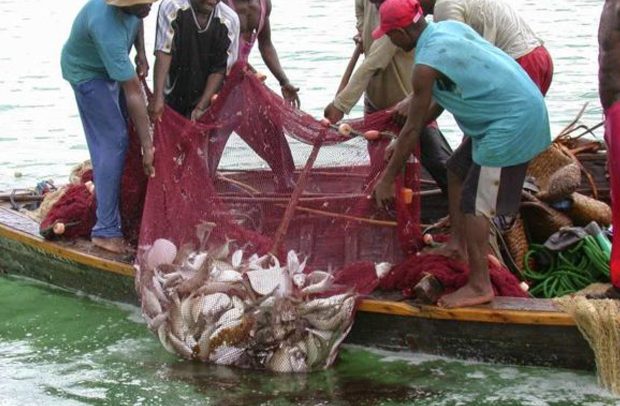Until science proved them wrong, many used to think that fish stock in the oceans and rivers is inexhaustible.
Scientific research by experts around the world has proven that not only is fish stock exhaustible, some species are already on the brink of extinction.
We recall a recent workshop organised by the USAID at Elmina for media actors on the depleting stocks of fish species and the need to reverse the situation. It was a workshop which was informed by the declining stock not only in Ghana but around the world.
We wonder if there is any meal without a fish component. Fish play a critical component of protein supply for mankind besides serving as a source of livelihood for many around the world including ours.
One of the best things to happen in the area of fish conservation is the establishment of the closed season during which no fishing activities are allowed. There is no gainsaying the fact that this is to ensure that fish species would be spared the nets of fishers so they can lay eggs as part of procreation and also fatten up.
Unfortunately as it is with all regulations, actors in the industry have not exhibited the necessary cooperation with regulators as required in such exercises.
In the end therefore, the dividends envisaged as a result of the suspension of fishing is lost and the threat to our fish stock continues.
While climate change plays a role in the declining fish stock around the world about which there is little we can do in the short-term, the same cannot be said about other factors such as illegal, unregulated and unreported (IUU) fishing activities, excessive fishing capacity, overfishing and the fishing of juvenile fishes, deliberately or otherwise.
These factors are the irresponsible actions of man which can only be stemmed through regulation enforcement and education.
Massive education of fisher-folk across the country should be undertaken. This is necessary because of the erroneous notion that fish stock cannot be exhausted.
Modern fishing methods have put special pressure on fish stocks to the extent that today statistics show that some species are being pushed to the precipice.
Following the opening of the fishing season after a closure a couple of years ago or so, some fishermen remarked that they had witnessed improved catches. The period between July and August being the mating and laying season of fish, it can only be irresponsible practice not to debar fishing at this time.
It is no magic that the period after the closed season is characterised by increased catches and bigger fishes.
We would implore the authorities to do more scientific work on alternative occupations for fishermen and persons in related industry during the closed season, the absence of options being why they abhor the period.
What better evidence do we need for the importance of closed season than the improved catches following it- the increased statistics of anchovies, pelagic species and others.
As the mainstay of protein for humankind, the place of fish in our livelihood cannot be overemphasized, hence the need to ensure good fishing practices including of course the enforcement of closed seasons.


